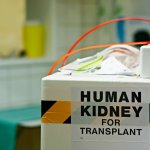
News • OrQA
Transplant organ quality assessment via AI: a promising approach
A pioneering new method to assess the quality of organs for donation has the potential to revolutionise the transplant system, saving lives and tens of millions of pounds.

A pioneering new method to assess the quality of organs for donation has the potential to revolutionise the transplant system, saving lives and tens of millions of pounds.
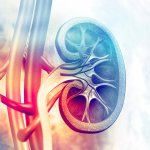
In a world first, scientists from Singapore and Germany have shown that regenerative therapy to restore impaired kidney function may soon be a possibility.
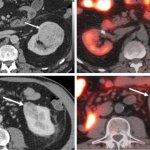
99mTc-Sestamibi SPECT/CT can aid in the diagnosis of solid renal lesions, especially in cases where contrast enhanced CT findings are inconclusive, according to researchers from the Mallinckrodt Institute of Radiology at Washington University School of Medicine in St. Louis, Missouri.

Renal cell carcinoma is among the fifteen most common cancers worldwide. Dr Titus Brinker, from the German Cancer Research Center (DKFZ), looked at whether a convolutional neural network (CNN) can extract relevant image features from a typical H&E-stained slide to predict 5-year overall survival.
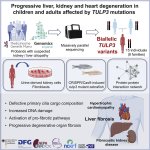
Scientists have identified a new disease in a ground-breaking discovery that could help patients with unexplained liver and kidney problems.

Rising temperatures due to climate change will lead to an increase in cases of kidney stones over the next seven decades, even if measures are put in place to reduce greenhouse gas emissions.

The Coronavirus SARS-CoV-2 infects the kidneys and contributes to tissue scarring, as shown by researchers from Germany and the Netherlands.

Digital technology solutions create new opportunities in diagnosis and assessment of renal conditions. With whole slide imaging (WSI), improved workflow and better visualization, such technology already yields a ROI for hospitals and laboratories.
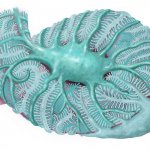
Researchers have leveraged the power of digital pathology and computational modeling to detect and quantify podocytes, a specialized type of cell in the kidney that undergoes damaging changes during early-stage kidney disease.
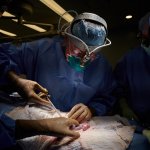
The first investigational transplantation of a genetically engineered, nonhuman kidney to a human body was recently completed at NYU Langone Health—marking a major step forward in potentially utilizing an alternative supply of organs for people facing life-threatening disease.
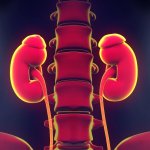
Non-alcoholic fatty liver disease (NAFLD) is the most common liver disease in western countries, with an increasing incidence worldwide. Consequences of NAFLD can also include kidney disease and kidney stones, although the mechanisms for the development of these kidney complications as a result of NAFLD have not yet been fully explained. Researchers at the Leibniz Research Centre for Working…
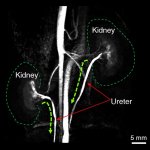
Magnetic resonance imaging (MRI) is widely used to identify the narrowing or blockage of blood vessels. Contrast agents improve the visibility of the structures and offer more accurate information of vascular conditions such as vascular blockage and stenosis. Commonly used gadolinium-based contrast agents must be administered in chelated forms due to the gadolinium ions' high toxicity and pose…

Hemodialysis patients routinely experience side effects such as fatigue, lightheadedness and nausea during their treatment sessions. But patients in a study who used a virtual reality program to engage in a mindfulness/meditation exercise reported that these treatment-related symptoms were greatly reduced. Patients in the study wore a head-mounted virtual reality display to participate in a…

An autoimmune side effect of immune checkpoint inhibitor (ICI) drugs could signal improved control of kidney cancer, according to a new study by researchers in UT Southwestern's Kidney Cancer Program (KCP).

Human cells need to work like well-oiled machines to keep our bodies running as they should. Waste products such as misfolded proteins, damaged cellular components, and carbohydrates get in the way and must be quickly disposed of. Dealing with this cellular “trash” are spherical, membrane-bound organelles called lysosomes filled with a mixture of potent enzymes. In a process called autophagy,…
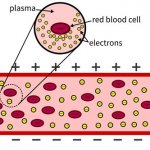
Scientists at the University of Delaware and Princeton University have developed a method to monitor blood damage in real-time. “Our goal was to find a method that could detect red blood cell damage without the need for lab sample testing,” said Tyler Van Buren, an assistant professor of mechanical engineering with expertise in fluid dynamics. The researchers recently reported their technique…

A course of action to early detect and treat severe courses of COVID-19 infections has been developed by an expert-team of the University Medical Center Goettingen (UMG). A simple urine test is intended to help medical professionals to recognize warning signs of future decompensation of COVID-19 infections earlier. With the help of a few parameters, the treatment of imminent complications can…

St Helier Hospital in the London Borough of Sutton – part of the Epsom and St Helier University Hospitals NHS Trust – has one of the largest renal medicine departments in the UK, and relies on Fujifilm SonoSite point-of-care ultrasound (POCUS) systems to improve care and patient safety. Dr Pritpal Virdee, a senior registrar in the department, explained: “We have a very busy renal department…
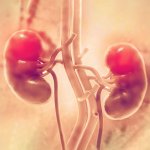
New research indicates that subtle structural features of donated kidneys from living donors may predict the risk of kidney transplant failure in recipients. The findings, which appear in an upcoming issue of JASN, may help clinicians as they evaluate the quality of organs at the time of transplantation. The quality of donated kidneys obtained from living donors is often inferred from their age,…
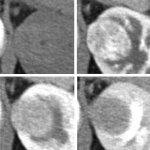
A deep learning method with a convolutional neural network (CNN) can support the evaluation of small solid renal masses in dynamic CT images with acceptable diagnostic performance, according to an article published ahead-of-print in the March issue of the American Journal of Roentgenology (AJR). Between 2012 and 2016, researchers at Japan’s Okayama University studied 1807 image sets from 168…

Early non-invasive detection of kidney rejection after transplantation was the central aim of a collaboration between Prof. Dr. Bernhard Banas, Chairman of Nephrology at the University Hospital Regensburg (UKR) and the medical diagnostics company, numares. The results of their joint clinical trial “UMBRELLA” were just published in EBioMedicine and presented at the American Society of…
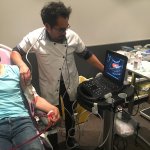
Point-of-care ultrasound (POCUS) systems are becoming a common sight in nephrology departments and renal dialysis clinics, helping clinical staff to evaluate and effectively access the vasculature of dialysis patients. Dr Jean-Yves Bosc, a nephrologist and vascular doctor working at the non-profit private health establishment AIDER SANTÉ in the South of France, has been a champion of ultrasound…

Traditional MRI (magnetic resonance imaging) scans use the metal gadolinium, which resonates areas of the heart muscles that are not functioning efficiently. However, gadolinium affects the Kidney function. A new 3D MRI computing technique developed by scientists at the University of Warwick calculates strain in heart muscles showing which muscles are not functioning enough without damaging other…

Women with pre-eclampsia during pregnancy have a five-fold increased risk of end stage kidney disease (ESKD) later in life compared to women who don’t develop pre-eclampsia during pregnancy, according to a new study. Professor Louise Kenny from the University of Liverpool is one of the co-authors of the study, which is published in PLOS Medicine and also involved researchers at University…

For patients with kidney failure who need dialysis, removing fluid at the correct rate and stopping at the right time is critical. This typically requires guessing how much water to remove and carefully monitoring the patient for sudden drops in blood pressure. Currently there is no reliable, easy way to measure hydration levels in these patients, who number around half a million in the United…